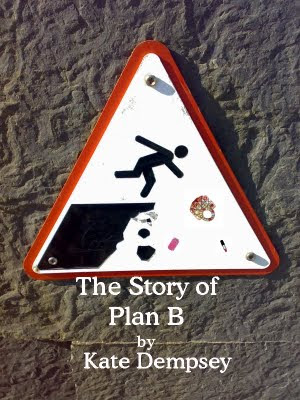Review of Heaney’s The Human Chain
By Nicole O'Driscoll
Seamus
Heaney explains that his second book, Door
into the Dark, was a ‘gesture’ towards our understanding of poetry as a
‘doorway’ between words and submerged feelings. Published in 1969, the title of
that volume had a very different resonance with a poet who was forty-one years
younger at that time. Human Chain as
a title offers reassurance to a much older man who has survived a stroke that
he can still explore those doorways, but with connections that draw him back. The
line of the human chain and its characters hold onto him, the explorer of ‘the
dark,’ ensuring his exit again back into the light of everyday being.
The
poems are grouped around a set of themes or links that maintain the sense of
the chain running through the collection, unbroken. There is plenty of
meditation on the way about how the links do
get broken: through loss, tragedy, obscured memory, taciturn communication and
the end of old traditions. In ‘Chanson d’Aventure’ Heaney could not feel his
wife Marie hold his affected hand in the ambulance on the way to the hospital
after his stroke, nor could he see her properly because a drip-line dropped
down between them, ‘bisecting’ their view of each other.
Contemplation
and apprehension of death form the backdrop of Human Chain, but one of the ways that Heaney assiduously repairs
the links is through his characteristic use of Virgil, focusing this time on
the theme of eternally returning home. In ‘The Riverbank Field’ he quotes The Aeneid, in which the ‘spirit troops’
are given second bodies and encouraged to drink from the River Lethe so that
they forget that they had ever been to the underworld. Virgil’s conclusion on
the subject, which Heaney likes to end the poem on, is that the
‘soul is longing to dwell in flesh
and blood
Under the dome of the sky.’
The
poem invokes the possibility of resurrection to life in a way that spares us
even the trauma of remembering past lives and deaths.
Heaney sheds the usual light on everyday experience through
the ordinary rituals of family and community, and his colloquial use of
language to accentuate the atmosphere of being amongst the ‘spirit-troops,’ the
unsung heroes of The Human Chain. But
much in the style of Seeing Things he
also takes those rituals and transcends them beyond the ordinary. In ‘A
Mite-box,’ the alms collector pierces a piece of card with a pin for every
household that donates ‘A way … to see a
way to heaven.’ The whispering tongues will know which household hasn’t
made a donation towards their heaven-bound travel expenses – that is the way of
the close-knit community. But to Heaney, put alms and charitable missions to
one side, and that transcendent view is already our birth-right as long as we
are ready to capture the moment. The pinhole of the alms card provides ‘The same as when a pinholed Camera/
Obscura unblinds the sun eclipsed.’ ‘An
Old Refrain’ paradoxically sings a new tune about having an unboundaried view
from our earthbound place, which we create as our own locale in the way that we
name things.
The theme of ‘father and son’ has
long infused the question of death with the pathos of mourning by association
rather than by direct reference. Heaney understates his own imminent ageing;
rather than patronise his reader, he leaves it to us to make the connection
that he is now the most vulnerable link in the chain. In ‘The Butts’ he
describes how as a young lad he would reach into his father’s suit-pockets,
scavenging for cigarette butts to smoke. The suits had a degree of
self-possession – ‘a bit standoffish’ – that was lost to his father in his old
age. Young Heaney finds ‘Nothing but
chaff cocoons,/ A paperiness not known again until the last days came,’
when his father, frail and underweight, had to be washed and cared for ‘Closer than anybody liked/ But having, for
all that,/ To keep working.’
This gentle, unceasing rhythm of caring
for a frail elderly person contrasts with the title poem that is all heaving
and straining under the weight of the grain-sacks. On the farm they need a
chain of at least two people to carry out their labour, though in the first
stanza Heaney imagines that this chain is a line of aid-workers feeding a
starving crowd, with ‘soldiers firing over the mob.’ Hand-to-mouth existence is
no match for these ‘spirit-troops’, who seem to have lost the hang of connectivity.
The musicality of cooperation and linking
that undulates throughout this volume is interrupted in the title poem by a
vision of threatened annihilation. And this is the truth that we must all face
sometime in our lives: ‘The eye-to-eye,
one-two, one-two upswing’ of lifting grain-sacks together in the rhythm of shared
life can be back-breaking. The moments of relief, ‘quick unburdening’ of each
load’ feel so great that each cannot match the last. Taking a breather from the
labour of living feels momentarily freeing, and singular: ‘A letting go which will not come again.’ But if these moments are
to end altogether, ‘once. And for all’ the individual’s vision of the human
chain slackens. We must then feel prepared to contemplate the finality of our doors
into the dark while we adjust to knowing that our senses devour our last
summer, like Derek Hill in ‘The Baler’ who
Could bear
no longer to watch
The sun
going down
And asking
please to be put
With his
back to the window.’









No comments:
Post a Comment